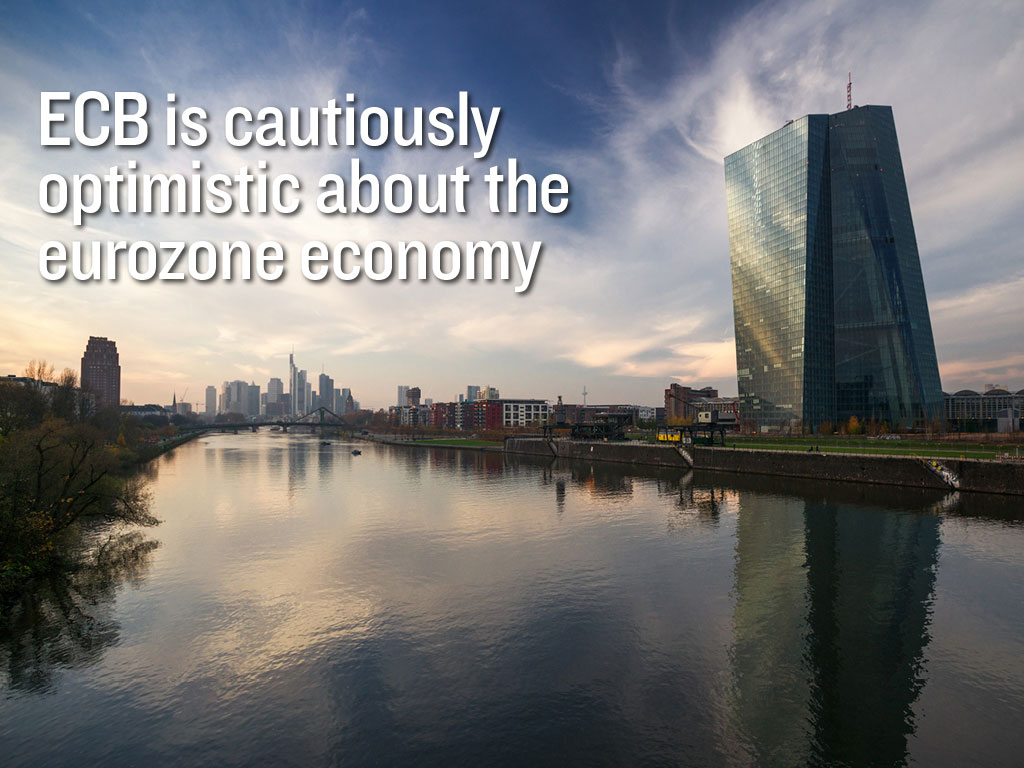

The European Central Bank has released the minutes of its latest meeting and its assessment of the eurozone economy is cautiously optimistic, pointing to positive news from a number of economic indicators – suggesting the eurozone’s long running low inflation may be coming to an end.
Consumption is expected to be the real driver in the eurozone picking up steam
The bank noted that “following declines in April and May, the composite output PMI had risen in June, reflecting developments in manufacturing, as well as in services, and more than recouping the fall in the two previous months,” and that PMI in June was “at levels above their respective long-term averages.” Consumption is expected to be the real driver in the eurozone picking up steam, with the drop in the price of oil and real disposable income growth picking up broadly across the largest eurozone economies.
The labour market was noted as still being weak, with employment remaining at 11.11 percent between April and May, however some respite was found in survey data that pointed “to continued moderate employment growth in the period ahead.” It was also noted that a “further recovery in investment could be expected later on in view of favourable financing conditions and lower energy prices”
One key area of concern for the eurozone has been its long period of low inflation. As the Financial Times, notes “weak price pressures in the eurozone last year triggered fears that the currency area, which has yet to recover from global and regional economic crises, could experience a destabilising bout of Japanese-style deflation.”
There were some signs that this era of low inflation may be over, with the ECB noting that “inflation rates were expected to increase towards the year-end,” while “medium-term inflation expectations had recovered some of the ground lost since the summer of last year.” However, the bank was cautious in its predictions, pointing out that “it was still too early to confirm that a turning point had been reached in underlying inflation.”

